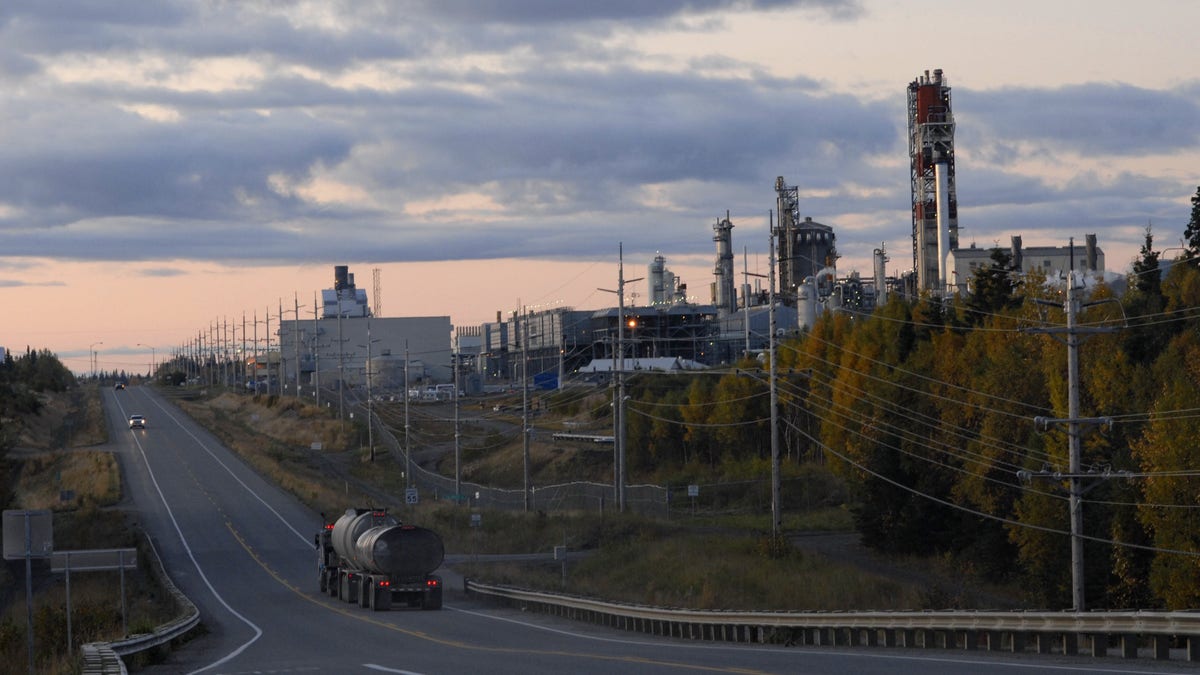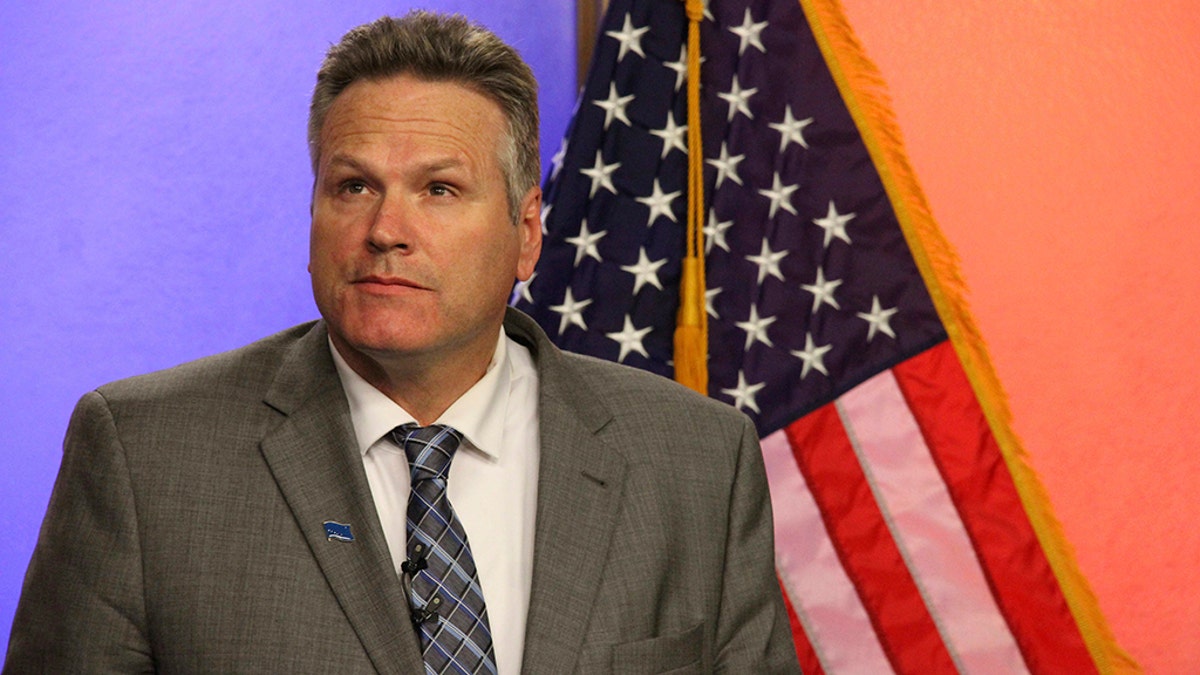Alaska Gov. Dunleavy slams Biden's 'cancel culture' energy policy: 'It's been a lack of opportunity'
Alaska Gov. Mike Dunleavy joined "The Brian Kilmeade Show" to discuss how the Biden administration's energy policy has inhibited Alaska from producing oil and reducing prices at the pump.
MAT-SU BOROUGH, Alaska – Alaska Gov. Mike Dunleavy heralded a potential new renewable energy source largely unique to the Last Frontier, while criticizing federal Democrats' continued battle against utilizing the state's vast oil and gas reserves.
Cook Inlet, which extends south from the state's largest city, Anchorage, down the Kenai Peninsula and into the Gulf of Alaska, has the second-largest tides on Earth, Dunleavy told Fox News Digital in a recent interview.
Dunleavy said he is encouraging investment in harnessing Cook Inlet tides to produce a reliable energy source, particularly "green hydrogen," while rejecting the idea that the debate over "green" vs. fossil fuels is a zero-sum game.
He pointed to the Kenai itself as example of an area rich with both types of resources that, at its potential, could be productive in both means.

An oil and gas site in Kenai, Alaska. (Farah Nosh/Getty)
"That basin in Cook Inlet is the most energy-rich basin on the planet: onshore wind, offshore wind, coalfields, oil, gas, tidal, geothermal — all right there," he said, noting the wind farm on Fire Island is easily visible from planes taking off at Ted Stevens Anchorage International Airport.
He said, however, the major issue surrounding any green project is energy-storage capability, pointing to Germany as an example of where that problem has come up.
"You [also] have to have something; a baseline power, which should be gas, to be perfectly honest with you."
A Maine-based company recently expressed interest in building such tidal-power generators in the Knik Arm at Port Mackenzie, and at Nikiski near Homer, according to Alaska Public Media.
ALASKA SUES FEDS OVER POLLUTED LANDS GOVERNOR SAYS DC ‘KNOWINGLY’ TRANSFERRED

Gov. Mike Dunleavy, R-Alaska (AP Photo/Mark Thiessen)
Regarding President Biden and the left's continued opposition to utilizing U.S. oil and gas capabilities, Dunleavy said those who want to see an increasingly green energy future should think about how Alaska's and other states' fossil fuel reserves could actually help their cause.
"What people need to know is that Alaska's got this enormous renewable potential that we're going to capitalize on – but you also have to be able to pay for the capital projects in renewables, such as hydro, solar, wind, and the storage — whether that's going to be pumped-hydro up here or some other way to store the energy — but you need to have oil and gas to help pay for that.
"So, it makes perfect sense for me — I couldn't understand why on ANWR (Arctic National Wildlife Refuge), the federal government did not want to develop ANWR because what they could have done was taken their cut of the royalties and put it into a renewable fund," he said.
The governor noted that while the White House has cracked down on oil and gas speculation on federal lands, he has encouraged "heavy oil" production on the state-owned Prudhoe Bay oil field.
Dunleavy added that the federal government's "permitting horizon" is too long for both fossil fuel and renewable interests, explaining that red tape from various bureaucracies has a tendency to hamstring, delay or outright discourage investment.
IN THE ONLY STATE BORDERING RUSSIA, ALASKA GOVERNOR SAYS DEFENSES ARE STRONG

Aircraft depart from Ted Stevens Anchorage International Airport in Anchorage, Alaska. (iStock)
"You have a lot of money now in the pipeline, but that money is really going nowhere except the consultants because it's extremely difficult to get those agencies to move fast enough to permit anything."
In terms of in-state support for what he considered an all-of-the-above approach to energy production, Dunleavy said it has been very much bipartisan, pointing in one case to the popularity of a resolution that would create a state-supervised "green bank" to attract capital investment in such projects.
He added that he has also encouraged the state's Department of Natural Resources to assist in future projects, green and otherwise.
When asked if Juneau expected to get credit from Washington for its focus on renewables, the governor replied, "Probably not."
A provision in the recent Inflation Reduction Act, authored by Democratic Sen. Joe Manchin of West Virginia and recently signed by President Biden, will reinstate recently curtailed oil leases in 2,700 square miles of the Gulf of Mexico.
Manchin is one of a handful of Democrats who have voiced support for domestic production, along with Rep. Debbie Dingell of Michigan who has said batteries for electric vehicles should be produced in the United States, while Rep. Vicente Gonzalez and other Texas Democrats have urged "responsible" domestic production to supplant the need for Russian oil during the Ukraine war.













































